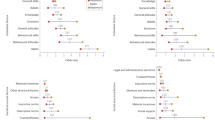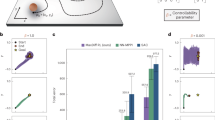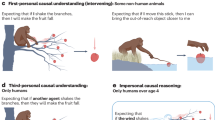Abstract
Mental effort is an elementary notion in our folk psychology and a familiar fixture in everyday introspective experience. However, as an object of scientific study, mental effort has remained rather elusive. Cognitive psychology has provided some tools for understanding how effort impacts performance, by linking effort with cognitive control function. What has remained less clear are the principles that govern the allocation of mental effort. Under what circumstances do people choose to invest mental effort, and when do they decline to do so? And what regulates the intensity of mental effort when it is applied? In new and promising work, these questions are being approached with the tools of behavioural economics. Though still in its infancy, this economic approach to mental effort research has already uncovered important aspects of effort-based decision-making, and points clearly to future lines of inquiry, including some intriguing opportunities presented by recent artificial intelligence research.
This is a preview of subscription content, access via your institution
Access options
Access Nature and 54 other Nature Portfolio journals
Get Nature+, our best-value online-access subscription
$29.99 / 30 days
cancel any time
Subscribe to this journal
Receive 12 digital issues and online access to articles
$119.00 per year
only $9.92 per issue
Buy this article
- Purchase on Springer Link
- Instant access to full article PDF
Prices may be subject to local taxes which are calculated during checkout





Similar content being viewed by others
References
Belden, T. G. & Belden, M. R. The Lengthening Shadow: The Life of Thomas J. Watson (Little, Brown, Boston, 1962).
Inzlicht, M., Shenhav, A. & Olivola, C. The effort paradox: effort is both costly and valued. Trends Cogn. Sci. 22, 337–349 (2017).
Hull, C. L. Principles of Behavior (Appleton-Century, New York, NY, 1943).
Kagel, J. H., Battalio, R. C. & Green, L. Economic Choice Theory: An Experimental Analysis of Animal Behavior (Cambridge Univ. Press, Cambridge, 1995).
Allport, G. W. The Nature of Prejudice (Addison Wesley, New York, NY, 1954).
McGuire, W. J. in The Handbook of Social Psychology (eds Lindzey, G. & Aronson, E.) 136–314 (Addision-Wesley, Reading, 1969).
Baroody, A. J. & Ginsburg, H. P. in Conceptual and Procedural Knowledge: The Case of Mathematics (ed. Hiebert, J.) 75–112 (Lawrence Erlbaum Associates, Hillsdale, 1986).
Taylor, S. E. in Cognition, Social Behavior, and the Environment (ed. Harvey, J. H.) 189–211 (Erlbaum, Hillsdale, 1981).
Navon, D. & Gopher, D. On the economy of the human-processing system. Psychol. Rev. 86, 214–255 (1979).
Smith, V. L. & Walker, J. M. Monetary rewards and decision cost in experimental economics. Econ. Inq. 31, 245–261 (1993).
Camerer, C. F. & Hogarth, R. M. The effects of financial incentives in experiments: a review and capital-labor-production framework. J. Risk Uncertainty 19, 7–42 (1999).
Shah, A. K. & Oppenheimer, D. M. Heuristics made easy: an effort-reduction framework. Psychol. Bull. 134, 207–222 (2008).
Shugan, S. M. The cost of thinking. J. Consum. Res. 7, 99–111 (1980).
Simon, H. A. A behavioral model of rational choice. Q. J. Econ. 69, 99–118 (1955).
Payne, J. W., Bettman, J. R. & Johnson, E. J. Adaptive strategy selection in decision making. J. Exp. Psychol. 14, 534–552 (1988).
Kool, W., McGuire, J. T., Rosen, Z. & Botvinick, M. M. Decision making and the avoidance of cognitive demand. J. Exp. Psychol. 139, 665–682 (2010).
Westbrook, A., Kester, D. & Braver, T. S. What Is the subjective cost of cognitive effort? Load, trait, and aging effects revealed by economic preference. PLoS ONE 8, e68210 (2013).
Westbrook, A. & Braver, T. S. Cognitive effort: a neuroeconomic approach. Cogn. Affect. Behav. Neurosci. 15, 395–415 (2015).
Westbrook, J. A. & Braver, T. S. The economics of cognitive effort. Behav. Brain Sci. 36, 704–705 (2013).
Culbreth, A., Westbrook, A. & Barch, D. Negative symptoms are associated with an increased subjective cost of cognitive effort. J. Abnorm. Psychol. 125, 528–536 (2016).
Chong, T. T.-J. et al. Neurocomputational mechanisms underlying subjective valuation of effort costs. PLoS Biol. 15, e1002598 (2017).
Dunn, T. L., Lutes, D. J. & Risko, E. F. Metacognitive evaluation in the avoidance of demand. J. Exp. Psychol. Hum. Percep. Perform. 42, 1372–1387 (2016).
Kool, W. & Botvinick, M. A Labor/leisure tradeoff in cognitive control. J. Exp. Psychol. Gen. 143, 131–141 (2014).
Apps, M. A., Grima, L. L., Manohar, S. & Husain, M. The role of cognitive effort in subjective reward devaluation and risky decision-making. Sci. Rep. 5, 16880 (2015).
Manohar, S. G. et al. Reward pays the cost of noise reduction in motor and cognitive control. Curr. Biol. 25, 1707–1716 (2015).
McGuire, J. C. & Botvinick, M. Prefrontal cortex, cognitive control, and the registration of decision costs. Proc. Natl Acad. Sci. USA 107, 7922–7926 (2010).
Posner, M. I. & DiGirolamo, G. J. in The Attentive Brain (ed. Parasuraman, R.) 401–423 (MIT Press, Cambridge, MA, 1998).
Shiffrin, R. M. & Schneider, W. Controlled and automatic information processing: II. Perceptual learning, automatic attending, and a general theory. Psychol. Rev. 84, 127–190 (1977).
Botvinick, M. M. & Cohen, J. D. The computational and neural basis of cognitive control: charted territory and new frontiers. Cogn. Sci. 38, 1249–1285 (2014).
Schouppe, N., Ridderinkhof, K. R., Verguts, T. & Notebaert, W. Context-specific control and context selection in conflict tasks. Acta Psychol. 146, 63–66 (2014).
Shenhav, A., Botvinick, M. M. & Cohen, J. D. The expected value of control: an integrative theory of anterior cingulate cortex function. Neuron 79, 217–240 (2013).
Shenhav, A., Cohen, J. D. & Botvinick, M. M. Dorsal anterior cingulate cortex and the value of control. Nature Neurosci. 19, 1286–1291 (2016).
Botvinick, M. & Braver, T. Motivation and cognitive control: from behavior to neural mechanism. Annu. Rev. Psychol. 66, 83–113 (2015).
Sayalı, C. & Badre, D. Neural systems of cognitive demand avoidance. Neuropsychologia https://doi.org/10.1016/j.neuropsychologia.2018.06.016 (2018).
Kahneman, D. Attention and Effort (Prentice-Hall, Englewood Cliffs, 1973).
Posner, M. I. & Snyder, C. R. R. in Information Processing and Cognition: The Loyola Symposium (ed. Solso, R. L.) 55–85 (Erlbaum Associates, Hillsdale, 1975).
Glimcher, P. W., Camerer, C. F., Fehr, E. & Poldrack, R. A. Neuroeconomics: Decision Making and the Brain (Academic, Oxford, 2009).
Verguts, T., Vassena, E. & Silvetti, M. Adaptive effort investment in cognitive and physical tasks: a neurocomputational model. Front. Behav. Neurosci. 9, 57 (2015).
Musslick, S., Cohen, J. D. & Shenhav, A. Estimating the costs of cognitive control: theoretical validation and potential pitfalls. In Proc. 40th Annu. Meeting Cognitive Science Society (2017).
Nicholson, W. & Snyder, C. M. Microeconomic Theory: Basic Principles and Extension (Cengage Learning, Mason, OH, 2008).
Charness, G. & Kuhn, P. What Can Labor Economists Learn from the Lab? NBER Working Paper No. 15913 (2010).
Dickinson, D. L. An experimental examination of labor supply and work intensities. J. Labor Econ. 17, 638–670 (1999).
Fehr, E., Goette, L. & Zehnder, C. A behavioral account of the labor market: the role of fairness concerns. Annu. Rev. Econ. 1, 355–384 (2009).
Hosking, J. G., Cocker, P. J. & Winstanley, C. A. Prefrontal cortical inactivations decrease willingness to expend cognitive effort on a rodent cost/benefit decision-making task. Cereb. Cortex 26, 1529–1538 (2015).
Cocker, P. J., Hosking, J. G., Benoit, J. & Winstanley, C. A. Sensitivity to cognitive effort mediates psychostimulant effects on a novel rodent cost/benefit decision-making task. Neuropsychopharmacology 37, 1825–1837 (2012).
Hosking, J. G., Floresco, S. B. & Winstanley, C. A. Dopamine antagonism decreases willingness to expend physical, but not cognitive, effort: a comparison of two rodent cost/benefit decision-making tasks. Neuropsychopharmacology 40, 1005–1015 (2015).
Sandra, D. A. & Otto, A. R. Cognitive capacity limitations and need for cognition differentially predict reward-induced cognitive effort expenditure. Cognition 172, 101–106 (2018).
Chevalier, N. Willing to think hard? The subjective value of cognitive effort in children. Child Dev. 89, 1283–1295 (2018).
Culbreth, A. J., Moran, E. K. & Barch, D. M. Effort-based decision-making in schizophrenia. Curr. Opin. Behav. Sci. 22, 1–6 (2018).
Eisenberger, R. Learned industriousness. Psychol. Rev. 99, 248–267 (1992).
Olivola, C. Y. & Shafir, E. The martyrdom effect: when pain and effort increase prosocial contributions. J. Behav. Decis. Making 26, 91–105 (2013).
Norton, M. I., Mochon, D. & Ariely, D. The IKEA effect: when labor leads to love. J. Consum. Psychol. 22, 453–460 (2012).
Festinger, L. A Theory of Cognitive Dissonance (Stanford Univ. Press, Stanford, CA, 1962).
Anderson, J. R. The Adaptive Character of Thought (Erlbaum, Hillsdale, 1990).
Shenhav, A. et al. Toward a rational and mechanistic account of mental effort. Ann. Rev. Neurosci. 40, 99–124 (2017).
Lieder, F. & Griffiths, T. L. Strategy selection as rational metareasoning. Psychol. Rev. 124, 762–794 (2017).
Kool, W., Gershman, S. J. & Cushman, F. A. Cost-benefit arbitration between multiple reinforcement-learning systems. Psychol. Sci. 28, 1321–1333 (2017).
Kahneman, D. Maps of bounded rationality: psychology for behavioral economics. Am. Econ. Rev. 93, 1449–1475 (2003).
Dickinson, A. Actions and habits: the development of behavioural autonomy. Phil. Trans. Roy. Soc. Lon. B 308, 67–78 (1985).
Wason, P. C. & Evans, J. S. B. Dual processes in reasoning? Cognition 3, 141–154 (1975).
Sloman, S. A. The empirical case for two systems of reasoning. Psychol. Bull. 119, 3–22 (1996).
Daw, N. D., Niv, Y. & Dayan, P. Uncertainty-based competition between prefrontal and dorsolateral striatal systems for behavioral control. Nat. Neurosci. 8, 1704–1711 (2005).
Dolan, R. J. & Dayan, P. Goals and habits in the brain. Neuron 80, 312–325 (2013).
Daw, N., Gershman, S. J., Seymour, B., Dayan, P. & Dolan, R. J. Model-based influences on humans’ choices and striatal prediction errors. Neuron 69, 1204–1215 (2011).
Otto, A. R., Gershman, S. J., Markman, A. B. & Daw, N. D. The curse of planning: dissecting multiple reinforcement-learning systems by taxing the central executive. Psychol. Sci. 24, 751–761 (2013).
Otto, A. R., Skatova, A., Madlon-Kay, S. & Daw, N. D. Cognitive control predicts use of model-based reinforcement learning. J. Cogn. Neurosci. 27, 319–333 (2014).
Smittenaar, P., FitzGerald, T. H., Romei, V., Wright, N. D. & Dolan, R. J. Disruption of dorsolateral prefrontal cortex decreases model-based in favor of model-free control in humans. Neuron 80, 914–919 (2013).
Kool, W., Cushman, F. A. & Gershman, S. J. When does model-based control pay off? PLoS Comput. Biol. 12, e1005090 (2016).
Kool, W., Gershman, S. & Cushman, F. A. Planning complexity registers as a cost in metacontrol. J. Cogn. Neurosci. https://doi.org/10.1162/jocn_a_01263 (2018).
Botvinick, M. M., Huffstetler, S. & McGuire, J. C. Effort discounting in human nucleus accumbens. Cogn. Affect. Behav. Neurosci. 9, 16–27 (2009).
Schmidt, L., Lebreton, M., Cléry-Melin, M.-L., Daunizeau, J. & Pessiglione, M. Neural mechanisms underlying motivation of mental versus physical effort. PLoS Biol. 10, e1001266 (2012).
Frobose, M. I. et al. Catecholaminergic modulation of the avoidance of cognitive control. Preprint at bioRxiv https://doi.org/10.1101/191015 (2017).
Gailliot, M. T. et al. Self-control relies on glucose as a limited energy source: willpower is more than a metaphor. J. Pers. Soc. Psychol. 92, 325–336 (2007).
Inzlicht, M., Schmeichel, B. J. & Macrae, C. N. Why self-control seems (but may not be) limited. Trends Cogn. Sci. 18, 127–133 (2014).
Randles, D., Harlow, I. & Inzlicht, M. A pre-registered naturalistic observation of within domain mental fatigue and domain-general depletion of self-control. PLoS ONE 12, e0182980 (2017).
Hagger, M. S. et al. A multilab preregistered replication of the ego-depletion effect. Perspect. Psychol. Sci. 11, 546–573 (2016).
Braun, D. A. & Arrington, C. M. Assessing the role of reward in task selection using a reward-based voluntary task switching paradigm. Psychol. Res. 82, 54–64 (2017).
Blain, B., Hollard, G. & Pessiglione, M. Neural mechanisms underlying the impact of daylong cognitive work on economic decisions. Proc. Natl Acad. Sci. USA 113, 6967–6972 (2016).
Brewer, G. A., Lau, K. K., Wingert, K. M., Ball, B. H. & Blais, C. Examining depletion theories under conditions of within-task transfer. J. Exp. Psychol. 146, 988–1008 (2017).
Inzlicht, M. & Schmeichel, B. J. in The Handbook of Self-Regulation (eds Vohs, K. D. & Baumeister, R. H.) 165–181 (Guilford, New York, NY, 2016).
Kurzban, R. The sense of effort. Curr. Opin. Psychol. 7, 67–70 (2016).
Kurzban, R., Duckworth, A., Kable, J. W. & Myers, J. An opportunity cost model of subjective effort and task performance. Behav. Brain Sci. 36, 661–679 (2013).
Otto, A. R. & Daw, N. The opportunity cost of time modulates cognitive effort. Neuropsychologia https://doi.org/10.1016/j.neuropsychologia.2018.05.006 (2017).
Wilson, R. C., Geana, A., White, J. M., Ludvig, E. A. & Cohen, J. D. Humans use directed and random exploration to solve the explore–exploit dilemma. J. Exp. Psychol. 143, 2074–2081 (2014).
Feng, S. F., Schwemmer, M., Gershman, S. J. & Cohen, J. D. Multitasking versus multiplexing: Toward a normative account of limitations in the simultaneous execution of control-demanding behaviors. Cogn. Affect. Behav. Neurosci. 14, 129–146 (2014).
Musslick, S. et al. Controlled vs. automatic processing: a graph-theoretic approach to the analysis of serial vs. parallel processing in neural network architectures. In Proc. 38th Annu. Conf. Cognitive Science Society 1547–1552 (2016).
Taatgen, N. A. in Integrated Models of Cognitive Systems (ed. Gray, W. D.) 368–379 (Oxford Univ. Press, New York, NY, 2007).
Yeung, N. & Monsell, S. Switching between tasks of unequal familiarity: the role of stimulus-attribute and response-set selection. J. Exp. Psychol. Hum. Percep. Perform. 29, 455–469 (2003).
Gray, W. D. The nature and processing of errors in interactive behavior. Cogn. Sci. 24, 205–248 (2000).
Kool, W. & Botvinick, M. The intrinsic cost of cognitive control. Behav. Brain Sci. 36, 697–698 (2013).
Teh, Y. et al. Distral: Robust multitask reinforcement learning. Adv. Neural Inf. Process. Syst. 30, 4497–4507 (2017).
Genewein, T., Leibfried, F., Grau-Moya, J. & Braun, D. A. Bounded rationality, abstraction, and hierarchical decision-making: An information-theoretic optimality principle. Front. Robot. AI 2, 27 (2015).
Hassabis, D., Kumaran, D., Summerfield, C. & Botvinick, M. Neuroscience-inspired artificial intelligence. Neuron 95, 245–258 (2017).
Miller, E. K. & Cohen, J. D. An integrative theory of prefrontal cortex function. Annu. Rev. Neurosci. 24, 167–202 (2001).
Białaszek, W., Marcowski, P. & Ostaszewski, P. Physical and cognitive effort discounting across different reward magnitudes: tests of discounting models. PLoS ONE 12, e0182353 (2017).
Author information
Authors and Affiliations
Corresponding author
Ethics declarations
Competing interests
The authors declare no competing interests.
Additional information
Publisher’s note: Springer Nature remains neutral with regard to jurisdictional claims in published maps and institutional affiliations.
Rights and permissions
About this article
Cite this article
Kool, W., Botvinick, M. Mental labour. Nat Hum Behav 2, 899–908 (2018). https://doi.org/10.1038/s41562-018-0401-9
Received:
Accepted:
Published:
Issue Date:
DOI: https://doi.org/10.1038/s41562-018-0401-9
This article is cited by
-
An experimental manipulation of the value of effort
Nature Human Behaviour (2024)
-
Inattentive responding can induce spurious associations between task behaviour and symptom measures
Nature Human Behaviour (2023)
-
Humans inherit artificial intelligence biases
Scientific Reports (2023)
-
Need for Cognition is associated with a preference for higher task load in effort discounting
Scientific Reports (2023)
-
Ethical and legal considerations for nutrition virtual coaches
AI and Ethics (2023)



